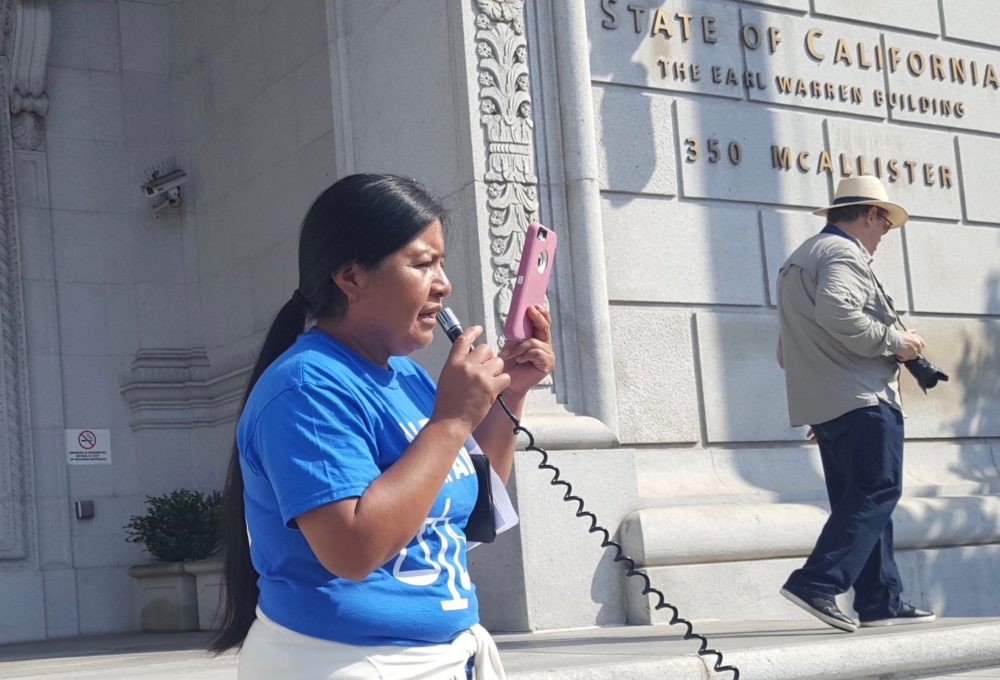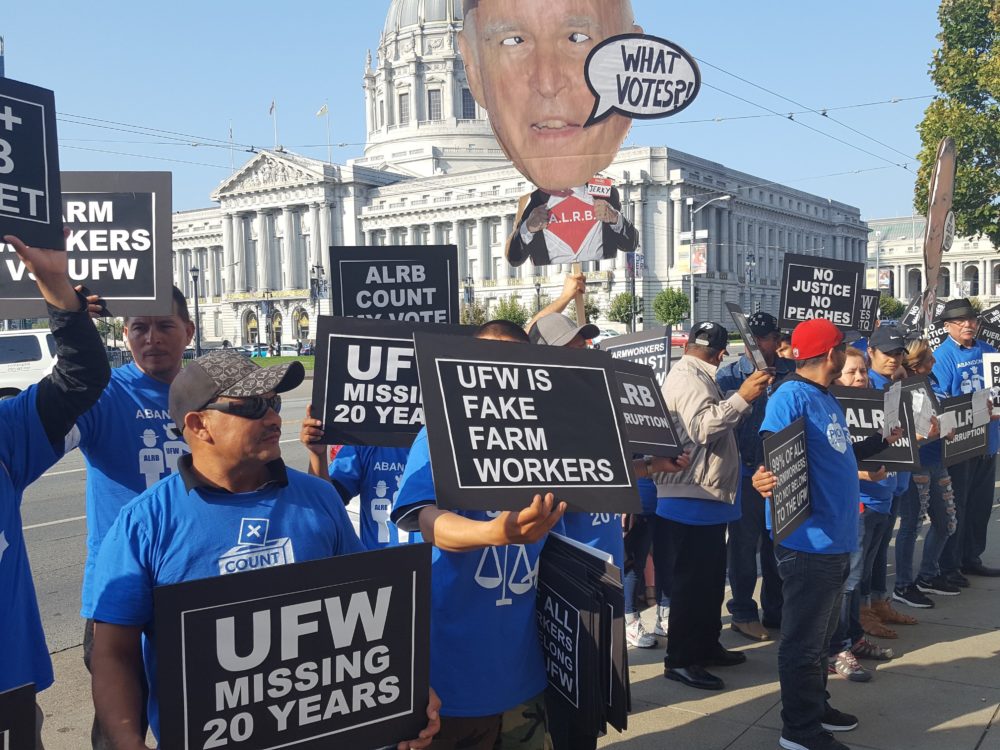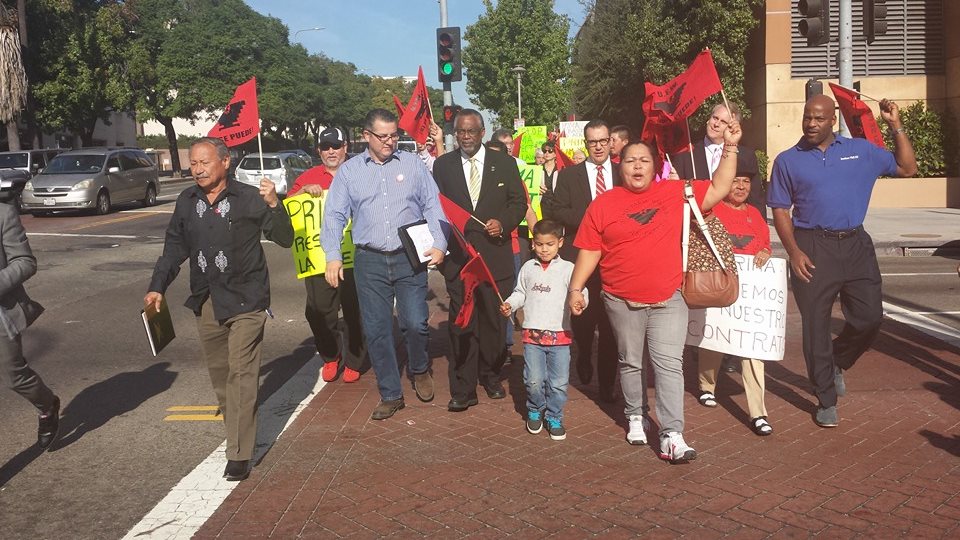Gerawan Workers Have Been Vindicated
Gerawan Workers Will See Vote Counted After 4.5 Years of Seeking Justice
By Laurie Greene, Founding Editor
Following the Nov. 5, 2013 Gerawan Farming, Inc. employees’ legally unresolved election to decertify the United Farm Workers (UFW) as their collective bargaining representative, the employees’ message has been simple: Count the votes!
Yesterday, California’s 5th District Court of Appeals—in a 3-0 decision—ordered the California Agriculture Labor Relations Board (ALRB) to unseal the ballots, count them and issue an official tally.
Dan Gerawan, who co-owns Gerawan Farming, Inc. with his brother Mike and father Ray, said “This is a victory for our employees who never gave up the struggle to achieve the same rights that all other workers have. And we never wavered from our support of their right to choose.”
“I have no clue when the votes are to be counted,” Gerawan explained. “The ARLB and UFW are going to appeal this decision to the California Supreme Court. I do not know if the California Supreme Court will take it.
“But I’m certain that ARLB and UFW are going to try to get the California Supreme Court to take it because the last thing they want is for our employees to have a choice. They want this unionization forced on them against their will,” Gerawan said.
“This is a huge victory and well deserved to these thousands of Latino immigrant farmworkers who have been fighting and sacrificing their time and families’ future to simply have the right to choose and vote in America,” Jesse Rojas, Spokesperson for Pick Justice, an advocacy group for Gerawan farm employees.
“The ALRB and UFW clearly continue to show that they are afraid to let workers vote and show what they want and what is better for their families. After glancing through the Fifth District Court of Appeals decision, I find the attached highlighted screenshots worth noting,” said Rojas.
Anthony Raimondo, president of Fresno-based Raimondo & Associates, is the attorney for Gerawan Farms employee Silvia Lopez, who started the petition and campaign to oust the UFW when they returned to the farm following 20 years of absence. The UFW never successfully represented the employees in reaching a contract with their employer, nor did it ever collect union dues from employees.
“The Court of Appeal is very clear,” said Raimondo. “It just says, ‘You’ve got to count the ballots.’”
“The first thing that Silvia said to me was how happy she is to get this decision from the Court,” Raimondo continued. “This is a vindication of what the workers have been fighting for, for more than five years now, since they first began this effort to expel the union. They aimed to protect their income from going to fund the UFW’s efforts,” Raimondo stated.
“The workers have been ignored. Their rights have been trampled on by the ALRB. The ALRB has disregarded them. They were told that they didn’t matter. They were told that their voice would never be heard, but they never gave up,” Raimondo said. “They never stopped fighting. This decision is a vindication of the fact that justice can be done and that the right thing can happen when people remain committed to it. I can’t say enough about the commitment these workers have shown to this effort.”
“This is a huge victory for these farm employees,” said California Assemblymember Jim Patterson who represents the 23rd Assembly District that covers parts of Fresno and Tulare Counties.
“I’m happy for them. Justice is being done, although it is taking a long, long time. It’s another indication of just how far off base the ALRB is. Primarily, the ALRB is a tool for the UFW to force the Gerawan field employees into contracts that they do not want, cannot approve, and did not vote for. So it’s a very good decision for these workers to have the kinds of freedoms that everybody else has.”
Patterson emphasized that the ALRB’s goal is to take those kinds of freedoms away. “The vote count will probably go forward. My guess is ALRB will try to drag their feet. But I think this is a solid [Court] opinion. And now we wait and see if the ALRB considers themselves to be above and beyond the law, or whether they recognize that they have gone far afield, and they’re going to have to correct some very, very illegal behavior,” Patterson said.
Raimondo explained, “There is no substantive history in the record that demonstrates that the ALRB had any jurisdiction or any legal standing to take those ballots and stash them away for all of these years. It was a blatant effort to stifle their votes to do the bidding of the UFW. They have gotten caught at it, and now they’re going to have to correct their illegal activity. If they don’t, I think they are going to suffer some severe decisions with these Courts. I think if they don’t comply, they’re going to get very close to breaking Court orders and breaking the law.”
Gerawan added, “Don’t forget, fifteen million taxpayer dollars have been spent to suppress those ballots. That kind of money spent by anyone, even the government, could [indicate] a lot of fraud took place with that ballot box.”
Raimondo claimed, “It is clear that the Gerawan farm employees are not cynical. They believe in the promise of America. They believe in our system of justice. That’s why they have continued to fight. It’s why they have continued to protest. It’s why they have continued to assert their voice in Court.”
“They knew from the very beginning that this was an injustice,” Raimondo continued..”They knew that the ALRB was mistreating them. They knew that they were treated like second-class citizens, but they also believed that if they continued to fight and to do things the right way—through peaceful protest and by asserting their positions in Court—that the right thing would happen. The workers had faith that the system works, that judges would ultimately hear their voices and that justice would be done.”
“The reality here, I believe, and the Gerawan workers believe, is that in the end, justice will prevail. We believe we will be heard and corruption will not win. The workers’ voice is going to win here. Democracy is going to win here. Those votes will be counted,” Raimondo said.



































